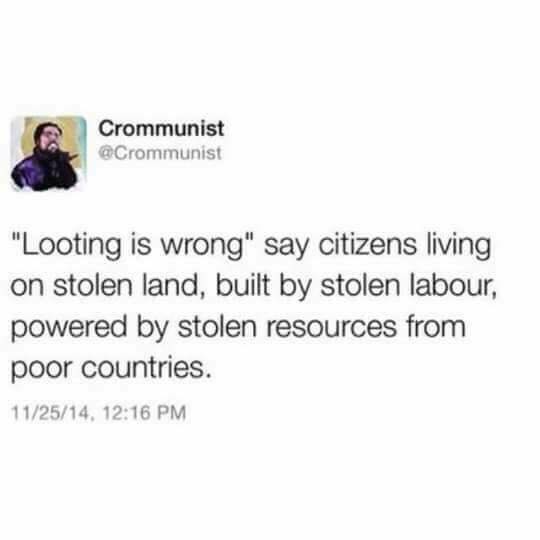My friend on facebook posted this statement:
'Looting is wrong' say citizens living on stolen land, built by stolen labour, powered by stolen resources from poor countries.
So it sounds like her argument is that because citizens live on stolen land, built by stolen labour, powered by stolen resources from poor countries, looting is not wrong?
The structure of this statement feels flawed, but I don't know enough about fallacies to pinpoint which fallacy it is, if indeed that's the case. I've been searching around and can't place it.
Can someone please point me in the right direction? Thanks.

